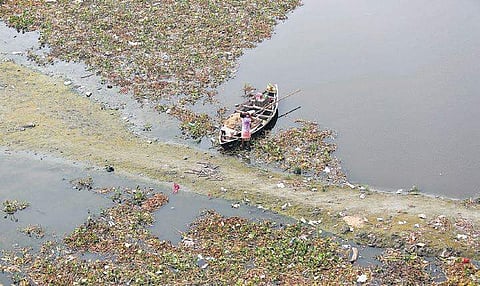

NEW DELHI: The Aam Aadmi Party (AAP) government has earmarked the land for its ambitious pilot project enabling storage of natural water of the Yamuna.The inter-departmental committee, which submitted its report to Chief Minister Arvind Kejriwal, has earmarked the Jhangola village in north Delhi for the project.According to sources, 33 acres of land in the village has been identified for the project and work is already underway.
With the chief minister showing a keen interest in the project and personally taking stock of its progress, the Irrigation and Flood department, under the Delhi Jal Board (DJB) and the Revenue department has laid out the contours of the plan to hold the monsoon run-off into the Yamuna and use it to recharge the city’s depleting groundwater table.Several studies conducted by the National Institute of Hydrology and IIT- Delhi have stressed on the ‘very high’ recharge potential of the Yamuna flood plain.
The study conducted by Indian National Trust Art & Cultural Heritage (INTACH) in 2015-16 for recharging groundwater in the national capital, stated, “The Yamuna floodplain, comprising 97sq.km of area in Delhi, offers a good scope for development of groundwater resources subsequent to the storage of monsoon waters on the floodplain itself. Under the Yamuna water sharing agreement, out of the 580 million cubic metre (MCM) of monsoon season flow allocated to Delhi, about 280 MCM goes unutilized due to lack of storages.”
In the event of flood on account of heavy rainfall, the Yamuna water rises and extends beyond its natural course, attaining relatively higher levels in the areas between the shanks in the Yamuna floodplain. The objective of the project is to conserve excess flood water during monsoon and use it to recharge the sub-soil groundwater.As part of the plan, a 5-km stretch from Palla in northwest Delhi to Wazirabad in North Delhi, will be developed as a massive natural reservoir using eco-friendly materials.